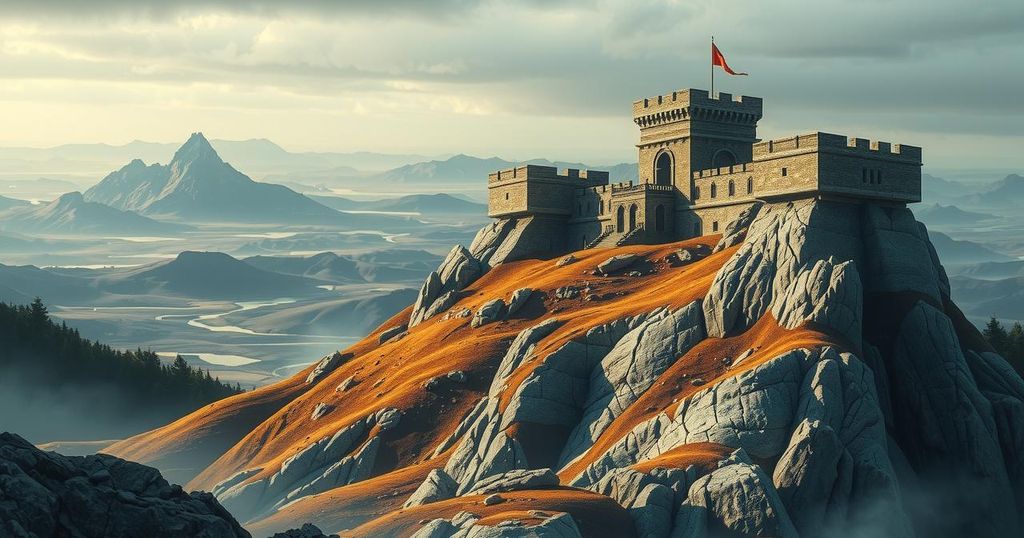Rwanda-backed M23 rebels have seized substantial control over Goma, DRC, resulting in over 100 deaths from recent fighting. The humanitarian crisis is severe, with increased displacements and health service struggles. International pressures for ceasefire and negotiation emerge as Goma faces dire circumstances, raising concerns of broader regional instability.
Rwanda-backed M23 rebels have significantly increased their control over Goma, the largest city in the eastern Democratic Republic of the Congo (DRC). Their advance demonstrates a substantial setback for the Congolese army amid an ongoing conflict that has resulted in extensive casualties and displacements. Following intense clashes, M23 fighters claimed to have taken full control of the city after entering it on Sunday, leading to over 100 deaths and nearly 1,000 injuries.
As fighting subsided to intermittent gunfire in northern Goma, local media reported increased tensions in neighborhoods including Katoyi and Majengo. M23’s political leader, Bertrand Bisimwa, asserted that insurgents were working to eliminate the remaining threats in the area and assured residents of their commitment to restore security.
Local residents are witnessing M23 forces and Rwandan troops occupying key facilities such as the airport and dominating central areas of Goma. Despite the relative calm reported in the city center, locals noted emptiness in typically bustling streets and markets. Rwanda’s regional ambassador mentioned that M23 intended to extend its operations beyond Goma, predicting a possible advance towards South Kivu.
The humanitarian situation in Goma has alarmed international aid organizations, with the United Nations highlighting impending mass displacements and food crises. Medical teams, including those from Doctors Without Borders, are struggling with the demands of treating the wounded amid reports of looting and unsafe conditions hampering medical aid access, contributed by armed conflicts.
M23 is one of many armed groups active in eastern DRC, with Rwanda consistently accused of its support, a claim it denies. The group arose amidst grievances from Tutsi fighters regarding mistreatment within the Congolese armed forces. M23 previously captured Goma in 2012 but was forced to withdraw under international pressure.
Increasing calls for a ceasefire are coming from the US and European nations, while the UN has urged Rwanda to cease its backing of M23. Despite a pending discussion between US Secretary of State Marco Rubio and Rwandan President Kagame regarding peace efforts, Congolese President Felix Tshisekedi will not attend an emergency summit, opting instead to address the nation directly.
The current conditions in Goma are dire, with many families fleeing to neighboring Rwanda, while others remain amidst ongoing electricity outages and internet disruptions. The International Crisis Group emphasizes the urgency for diplomatic negotiations to prevent a broader conflict in the region, proposing a withdrawal of M23 and alternative African forces managing Goma as a potential peacekeeping strategy.
The article discusses the escalating conflict in Goma, situated in the eastern DRC, as M23 rebels gain control over the area. This situation reflects decades of violence that has plagued the region, resulting in severe humanitarian consequences. The article outlines the impacts of both military actions and political responses, highlighting international concerns and the urgent need for diplomatic resolutions to prevent further violence and displacement.
The situation in Goma has rapidly deteriorated, with M23 rebels seizing control and raising significant humanitarian concerns. Amidst calls for a ceasefire, the response from international actors and the DRC government remains crucial. Effective negotiations are essential to avert a larger conflict reminiscent of past wars, necessitating collaboration among East African leaders for a potential compromise.
Original Source: www.aljazeera.com




